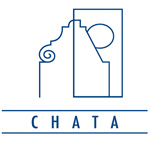Caribbean Hotels Adopt Near-Waterless Laundry
Record droughts in the Caribbean islands over the past five years have businesses rethinking their water use. With water and energy costs escalating and tourism being a primary industry, it is important for hotels and for businesses serving hotels to implement water conservation practices.
Verdanza Hotel in Puerto Rico was the first hotel to announce that they have adopted near-waterless laundry system by Xeros. Winner of the ‘Pineapple Leader Award’ for outstanding commitment to social and corporate responsibility, Verdanza Hotel is using Xeros’ polymer cleaning laundry system as a strategic component of the 222 room hotel’s commitment to reduce its impact on the environment while ensuring guests’ comfort.
Commercial launderer Scarab Group in St. Thomas also uses Xeros’ polymer bead cleaning laundry systems. The Scarab Group replaced all of their conventional washers with the Xeros systems to reduce their water and energy costs without sacrificing the quality of service to their luxury hotel customers. Based in St. Thomas, the sustainably focused Scarab Group provides laundry services to the majority of hotels across the island.
Conventional laundry operations in hotels represent 20 percent of overall water usage. In the U.S., a hotel laundry service uses approximately 25 gallons of water for each occupied room every single day. Traditional hotel laundry washing process relies heavily on heated water to extract stains from fabrics in the wash. All told, several gallons of water are consumed per pound of fabric that is washed in a standard washer-extractor machine.
With polymer bead cleaning, water is replaced as the primary cleaning medium in the wash. These beads, when introduced to a damp environment, act like sponges, expanding and opening up tiny pockets of space internally. When the beads rub up against soils in fabrics, the soils are absorbed and trapped inside the beads; just like a spill soaked up by a sponge.
The polymer bead cleaning process requires a fraction of the water that a traditional wash process needs to activate the sponge-like qualities of the beads. This laundry process reduces water consumption by up to 80%, energy by 50% and detergent by 50%. Not only is this technology good for the environment, it reduces operating costs as well. Imagine being able to run 1000 loads of laundry, but only having to pay for the water and energy used by 200 loads. To learn more, www.xeroscleaning.com.

































